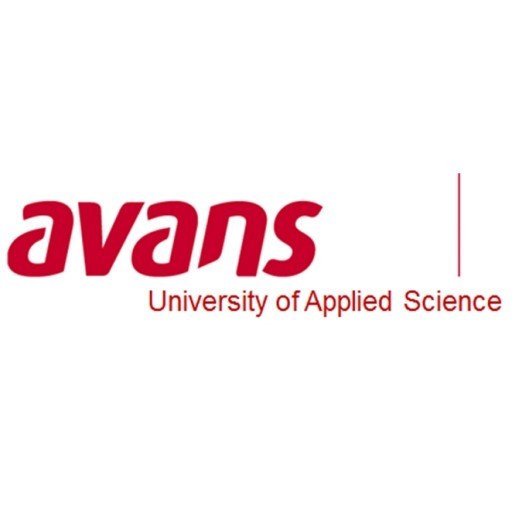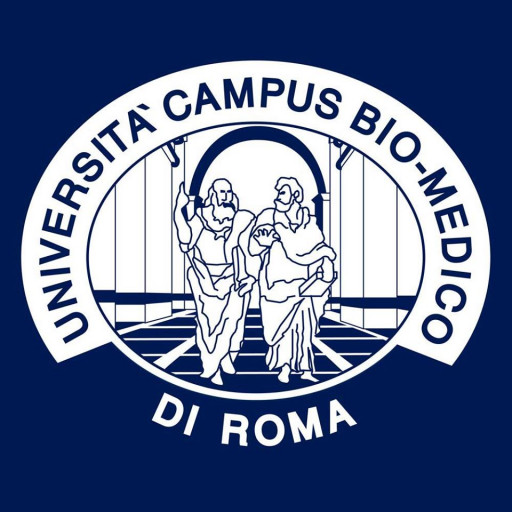Photos of university / #avanshogeschool
Environmental Science for Sustainable Energy and Technology at Avans University of Applied Sciences offers a comprehensive, multidisciplinary education designed to equip students with the knowledge and skills necessary to address the pressing global challenges related to energy sustainability and environmental protection. The programme combines principles from environmental science, engineering, and technology to prepare graduates for innovative contributions in the development, optimization, and management of sustainable energy solutions. Throughout the course, students engage with a broad spectrum of topics including renewable energy sources, energy systems analysis, environmental impact assessment, resource management, and climate change mitigation strategies. The curriculum emphasizes practical skills through laboratory work, projects, and internships, enabling students to apply theoretical concepts to real-world problems. The programme fosters critical thinking, problem-solving, and collaboration, preparing students for careers in industries such as renewable energy, environmental consultancy, public policy, and technology development. Students also gain insights into regulations, market dynamics, and societal aspects of sustainable energy implementation. The programme benefits from being taught by experienced faculty and provides networking opportunities with industry partners and research institutions. Graduates will be equipped to contribute to the transition towards a sustainable energy future, combining technical expertise with an understanding of ecological and societal considerations. With a focus on innovation and sustainable development, the programme aims to develop professionals capable of making meaningful impacts in both local and global contexts.
The Bachelor's degree programme in Environmental Science for Sustainable Energy and Technology at Avans University of Applied Sciences is designed to equip students with the knowledge and skills necessary to address the global challenges of energy sustainability and environmental preservation. Throughout this programme, students will explore the fundamental principles of environmental science, renewable energy sources, and innovative technologies that promote sustainable development. The curriculum combines theoretical coursework with practical applications, ensuring that graduates are well-prepared to contribute to the transition towards a more sustainable energy system.
Students will study subjects such as energy analysis, environmental impact assessment, sustainable technology design, and resource management. The programme emphasizes hands-on experience through laboratory work, projects, and internships, often in collaboration with industry partners and environmental organizations. This practical approach enables students to develop problem-solving abilities and gain insights into real-world challenges faced in the energy sector.
The programme also focuses on developing critical thinking, communication, and teamwork skills, essential for effective collaboration across interdisciplinary teams. Students will learn about policy and regulations affecting renewable energy deployment and environmental protection, preparing them for roles in consultancy, project management, research, and policy development.
Graduates of this programme will be capable of designing sustainable energy solutions, assessing environmental impacts, and implementing innovative technologies to reduce carbon footprints. They will be prepared for employment in renewable energy companies, environmental consultancy firms, governmental agencies, and other organizations dedicated to fostering sustainable development.
The programme is suited for students passionate about making a positive environmental impact through sustainable energy initiatives. With a curriculum tailored to the evolving demands of the green energy sector, graduates will be equipped to lead the way in creating a sustainable future for all.
Admission requirements
After completing an online assignment we will invite you for an assessment interview. The interview will take place at the university for Dutch students and via Skype or telephone for foreign students.
Other requirements
- intake gesprek After completing an online assignment we will invite you for an assessment interview. The interview will take place at the university for Dutch students and via Skype or telephone for foreign students.
- ingangstoets Only if prior knowledge does not seem sufficient.
- taaltoets cijfer Only if there are doubts about language ability.
- vooropleiding (ISPAC: vereiste vooropleiding) The level of your prior education has to be equivalent to a Higher General Secondary Education level (Dutch havo) with science profile (chemistry and mathematics) and English or Pre-University Level (Dutch vwo) with science profile (chemistry and mathematics) and English. In addition to the minimum diploma requirements, adequate knowledge of mathematics and chemistry is required. Additional knowledge of science subjects like biology and physics is preferred. If you are unsure whether you meet the admission requirements, please send us an email (esset.atgm@avans.nl). If we are not familiar with your foreign diploma, NUFFIC, the Dutch organisation for international recognition of diploma, will check the level for us.
The financing of the Environmental Science for Sustainable Energy and Technology program at Avans University of Applied Sciences is primarily based on a combination of tuition fees, government grants, and possible student loans. As a Bachelor's degree program offered in the Netherlands, tuition fees are set according to the regulations for higher education in the country. For EU/EEA students, the tuition fees are generally fixed by the government and are typically around €2,200 per year. For non-EU students, the fees may be higher, often around €9,000 to €12,000 annually, depending on the program and specific arrangements. These fees cover instruction, access to facilities, and other educational resources necessary for student learning.
Students enrolled in this program may be eligible for various financial support options. Dutch students can apply for government grants and student loans through the Dienst Uitvoering Onderwijs (DUO). The student loans are designed to help cover living expenses and tuition fees and are repayable after graduation under specific conditions. International students from the EU/EEA may also have access to certain scholarships or financial aid programs, although these are more limited compared to domestic students. Non-EU students generally need to arrange their financing independently, often through personal savings, sponsorships, or private loans.
In addition to governmental financial support, there are scholarship opportunities available on a selective basis for outstanding students. These scholarships are typically awarded based on academic performance, motivation, or extracurricular achievements. Some European or international organizations may also provide funding opportunities for students studying environmental sciences, renewable energy, or sustainable technology.
Students are encouraged to explore external funding sources, such as private sponsors or industry partnerships, which sometimes offer stipends or grants for research or internships integrated into the program. The program may also offer work-study opportunities or part-time jobs on or near campus, contributing to students' financial stability during studies.
In summary, the financing of the Environmental Science for Sustainable Energy and Technology program involves a mix of government-funded tuition fees, student loans, scholarships, and personal or external funding sources. The program aims to make higher education accessible by providing various financial pathways, but the specifics depend on the student’s nationality, academic performance, and available external funding sources.
Environmental Science for Sustainable Energy and Technology at Avans University of Applied Sciences is a comprehensive bachelor's degree program designed to prepare students for careers in sustainable energy solutions and environmental management. The program emphasizes the development of practical skills and theoretical knowledge in environmental sciences, focusing on sustainable energy technologies, environmental policy, and innovative solutions to energy and environmental challenges. Students learn about renewable energy sources, energy efficiency, ecological impacts, and the technological advancements necessary to transition to a sustainable future. The curriculum combines coursework, practical projects, and internships to give students hands-on experience in real-world settings. Throughout the program, students are encouraged to develop critical thinking and problem-solving skills, enabling them to analyze complex environmental issues and propose sustainable, innovative solutions. The program is delivered in English to attract international students and foster a diverse learning environment. Graduates of this program are well-equipped to pursue careers in energy consultancy, environmental management, renewable energy sector, and related fields. They may also continue their studies in specialized master's programs or engage in research activities. The program collaborates closely with industry partners and environmental organizations to ensure relevance and practical application of the knowledge gained. Overall, the course aims to produce environmentally conscious professionals who can contribute positively to sustainable development and energy transition efforts worldwide.










